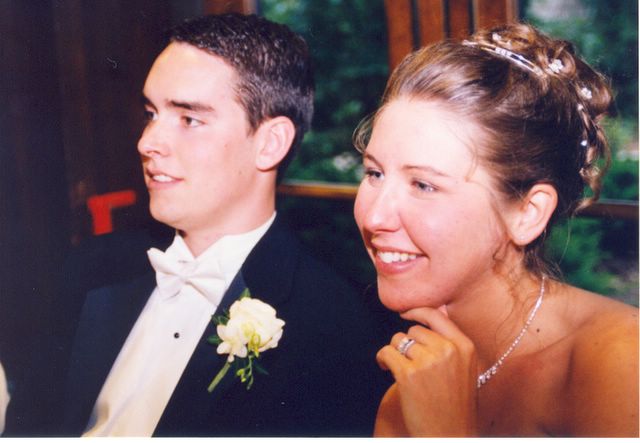My reading of Simone Weil in the past couple weeks has deeply renewed my commitment to take the sometimes contradictory acts of "living" and "thinking" together. Because of this renewed commitment, and because of the impact on my "life" that her "thought" has had, I wanted to share with all of you what struck me today in reading Simone Weil's Waiting for God. Here is a slice of my journal:
"As answer to a question that has troubled me for nearly two decades, and has never been satisfactorily approached, Weil makes this statement: "If it were conceivable that one might be damned by obeying God and saved by disobeying him, I would nonetheless obey him." This paradox approaches my longtime dilemma and dissatisfaction with the understanding of Christianity and loving God as some kind of cosmic/eternal vending machine that produces our eventual eternal dwelling place in Heaven. The need for comfort above all else that this implies leads us also to desire that comfort now, at the expense of the love of others as love of God. Were we to truly love God--as its own end--we are freed from the self-pursuit that "staying out of hell" implies and are freed to love extravagantly in this world as well. Never have I seen such consistency of thought as she implies here--that our love of others above self translates even to our eternal destiny. It seems she goes even beyond Paul in his letter to the Romans (chapter 9:1-3) here--though perhaps it is just another way to say it: Paul says that he would give up his own salvation for the sake of his fellow believers--he would embrace damnation if it resulted from love of others. Indeed, Weil translates this love of others to love of God as well--or perhaps sees them as equivalent?
Why do I obey God? Is it for the benefits I will accrue? Is it for the eternal reward I will receive? Or do I obey God PERIOD for God's sake--and the sake of those others around me for whom Christ gave up all his self interest, indeed was forsaken by God, for the sake of this love for God and love for others?
Have we protected ourselves so much from the difficult truths of the Bible that we need continual jolting out of it? Jolting that can only be obtained by reflecting and focusing on the extreme paradoxes that make up Christianity--seeking the extreme implications and living out the contradiction--as Weil lived, loved, thought and wrote.
She wants to remind us, through this reviving of paradox that "we live in a world where eternal values are reversed...that we do not truly believe those things to which we declare allegiance."
How do we live paradoxes instead of stale and easy platitudes?"
Has any of this struck you like it struck me?
Listening, loving and waiting, Y
Subscribe to:
Post Comments (Atom)

No comments:
Post a Comment